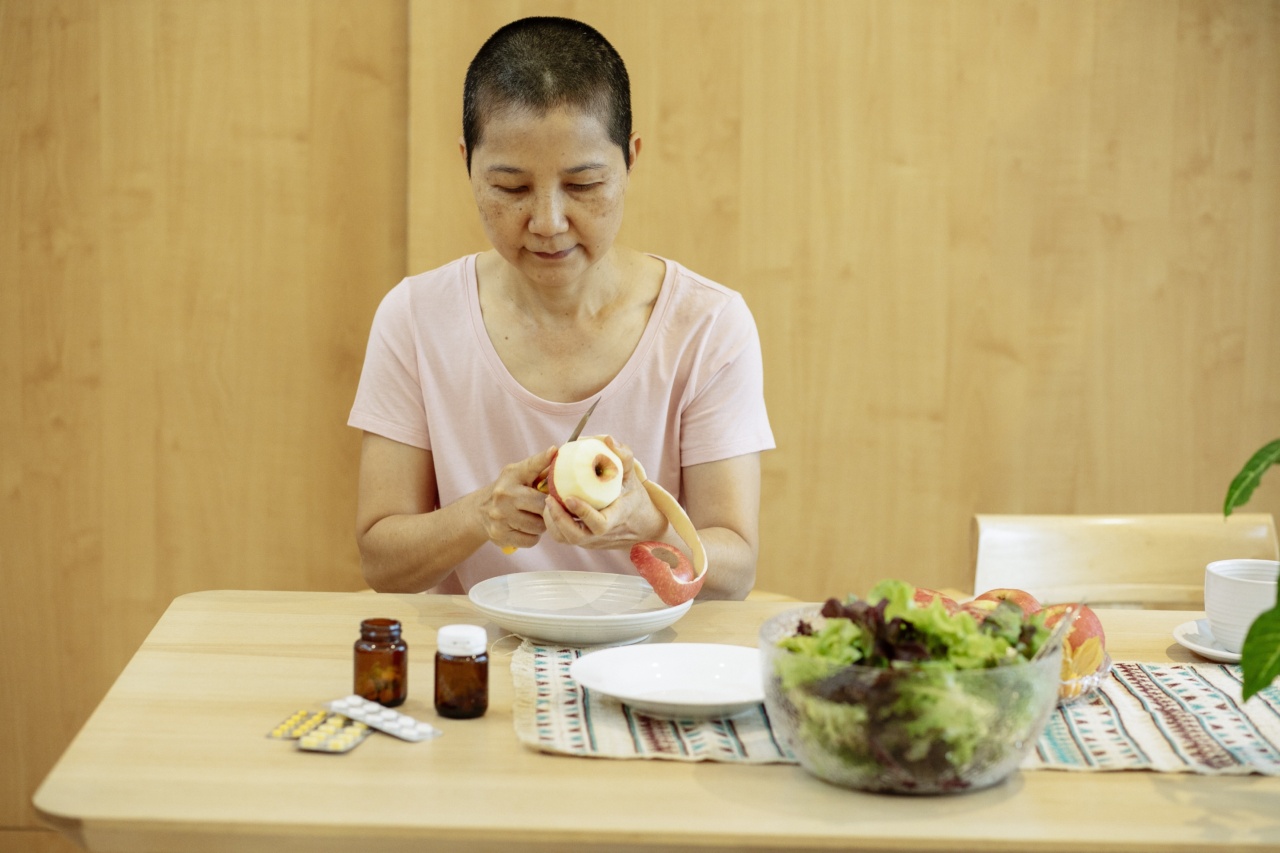Cancer is one of the leading causes of death globally, and its continued increase has become a significant public health concern.
In recent studies, it has become apparent that one’s nutrition plays a vital role in the prevention and treatment of cancer. In this article, we will explore the correlation between food and cancer progression.
The Role of Nutrition in Cancer Prevention
The link between nutrition and cancer prevention has been long established. Studies indicate that diets high in French fries, sugary drinks, and processed meat increase the risk of cancer.
A high intake of fruits, vegetables, and whole grains, on the other hand, has been proven to decrease the risk of cancer.
Studies show that people who consume plant-based diets have a reduced risk of dying from cancer than those who consume animal-based diets. Several theories attempt to explain this phenomenon:.
Theories of Nutrients vs. Carcinogens
The nutrients/protection theory posits that plant-based diets contain anticancer phytochemicals, vitamins, and minerals that protect against cancer.
Fruits and vegetables are rich sources of antioxidants such as vitamin C, which help to neutralize free radicals that can cause damage to cells and DNA.
The carcinogens/avoidance theory suggests that plant-based diets promote cancer prevention by avoiding carcinogens present in animal-based diets.
Processed meat, red meat, and dairy, when consumed excessively, are known to contain cancer-causing substances such as heterocyclic amines and polycyclic aromatic hydrocarbons.
Both theories have been proven to be correct to some extent. However, the protection theory appears to be more useful and effective in cancer prevention than the avoidance theory.
The Role of Nutrition in Cancer Treatment
Nutrition plays a vital role in cancer treatment. Patients with cancer undergo various therapies such as chemotherapy, radiation, and surgery, and these therapies can significantly affect their nutritional status.
Cancer patients need a balanced and healthy diet to enhance their immune system, ensure efficient metabolism, and maintain muscle mass.
Malnutrition and muscle wasting are common among cancer patients and lead to decreased efficacy of treatment, longer hospital stays, and poor quality of life.
Cancer-Fighting Foods
Some foods have cancer-fighting properties that can help prevent or slow down the progression of cancer. These include:.
Garlic
Garlic contains sulfur compounds that inhibit the growth of cancer cells and enhance the immune system. Studies indicate that consuming garlic regularly can reduce the risk of stomach and colorectal cancers.
Cruciferous Vegetables
Cruciferous vegetables such as broccoli, kale, and cauliflower contain cancer-fighting compounds such as sulforaphane and indole-3-carbinol. These compounds can prevent the development of tumors and stop the growth of cancer cells.
Berries
Berries such as blueberries, raspberries, and strawberries contain antioxidants that help to neutralize free radicals and prevent oxidative stress.
Some studies suggest that consuming berries regularly can reduce the risk of certain cancers such as breast and colon cancers.
Green Tea
Green tea contains polyphenols that are potent antioxidants and have been proven to have cancer-fighting properties. These polyphenols can inhibit tumor growth and reduce the risk of breast, prostate, and colorectal cancers.
Turmeric
Turmeric contains curcumin, a compound that has potent anti-inflammatory and antioxidant properties. Several studies indicate that curcumin can inhibit cancer cell growth and reduce the risk of colon, lung, and breast cancers.
Conclusion
Nutrition plays a vital role in cancer prevention and treatment. Diets high in fruits, vegetables, and whole grains can reduce the risk of cancer, while diets high in processed meat and sugary drinks increase the risk.
Cancer-fighting foods such as garlic, cruciferous vegetables, berries, green tea, and turmeric can help prevent or slow down cancer progression. Cancer patients undergoing treatment need a balanced and healthy diet to maintain their nutritional status and boost their immune system.


























